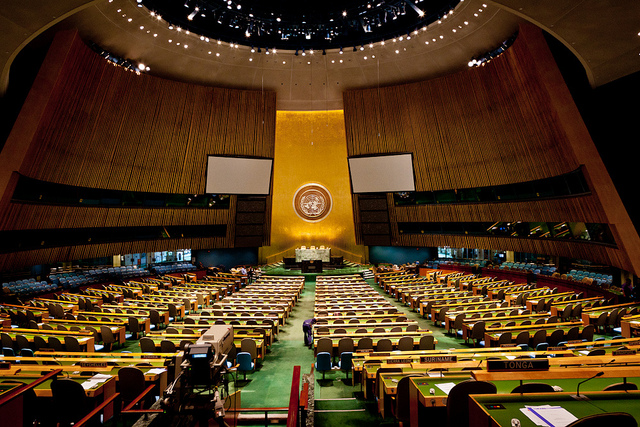IIGCC BLOG

Last week IIGCC together with six other partner investor networks sent a joint letter to the Heads of State and Governments of the world’s 21 largest economies including many of the world’s largest emitters of greenhouse gases. We were encouraged that on the same day we published the letter Canadian Prime Minister Justin Trudeau responded saying that he intended to work energetically with other key governments to bring the Paris Agreement into force earlier than envisaged.
Tomorrow over 167+ countries and the EU are expected to sign the Paris Agreement at the ceremony being hosted by the United Nations Secretary General in New York. While the immense political commitment this event will harness is beyond question, as Christiana Figueres, UNFCCC’s outstanding leader, has also said on many occasions since last December, the hard work begins now.
Against that backdrop one question on the mind of many institutional investors is when will the full impact of the Paris Agreement become visible to them? The need for far better company disclosure and 2°C stress testing is already provoking more investors than ever before to table climate-related shareholder resolutions during this year’s proxy season. However, most investors suspect the effects of the Paris Agreement will only become fully visible once it has been translated through policies and measures into regional or national policy frameworks and once they can see the full impact for each country and every company.
While the direction of travel has been firmly established by the unequivocal signal given to the investment community in Paris, the impact of the Agreement on the value of individual companies assigned by the financial markets may take longer to emerge. The main uncertainty for investors is not whether the Paris Agreement gets implemented but how companies fare through the process.
Prudent investors are already working – as a natural extension of their fiduciary duty - in a determined way to anticipate the changes that are bound to follow from the effective implementation of the Paris Agreement.
Recent history suggests an interesting lesson: when the European Union adopted its 2020 energy and climate framework in 2007 it took some time for the value of the utilities sector to fall. The full consequences for big utility companies only became visible years later when power suppliers valued highly in 2007/8 ended up far below the prime position they once enjoyed in major equity indices, due to a variety of reasons, including the technological changes accelerated by the 2020 framework.
Investors can’t fully predict how well or how rapidly companies will prove themselves able to respond to the risks and opportunities that will follow from implementation of the Paris Agreement. The way companies position themselves will certainly determine whether they win or lose from the low carbon energy transition now firmly underway. The way investors engage with companies will in turn impact corporate strategy and how their plans are evaluated for investment purposes.
7 groups (w/ 400 investors & $24 Trn AUM) urge world leaders to sign #ParisAgreement rapidly https://t.co/EFXoRqhhml pic.twitter.com/H1gdx6IL7m
— IIGCC (@IIGCCnews) April 19, 2016

